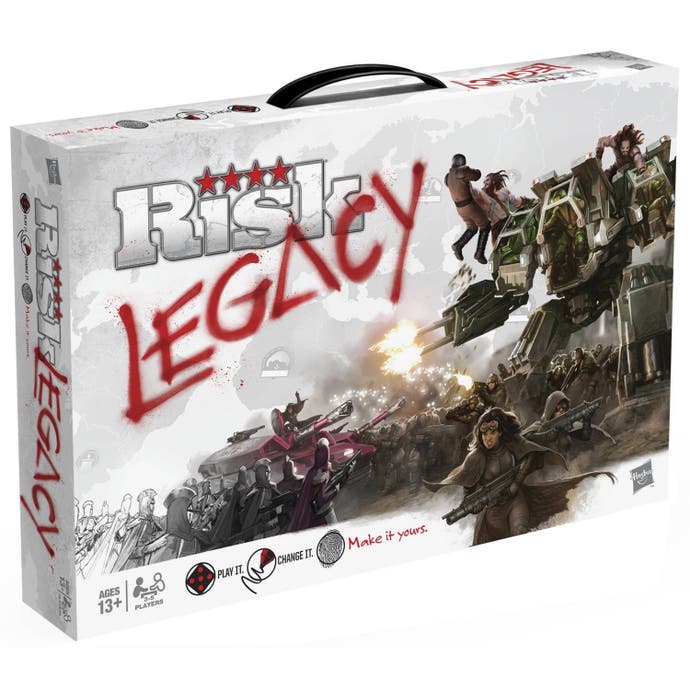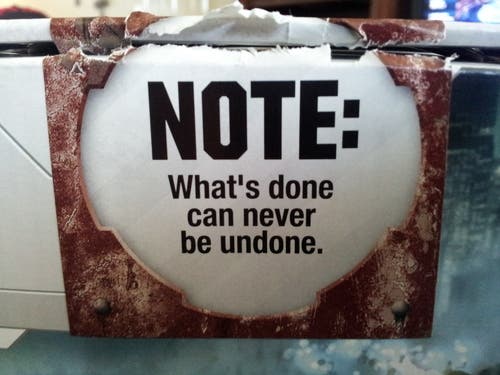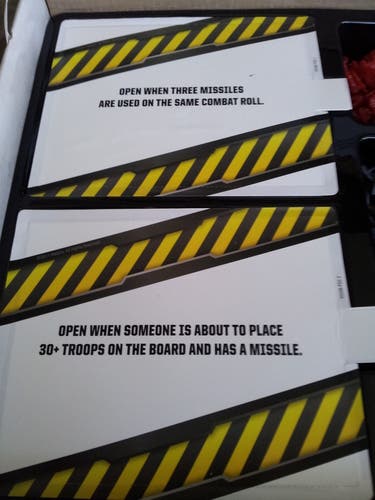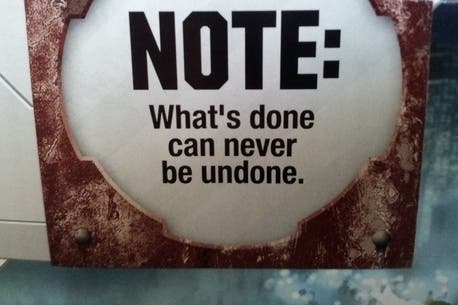Games of 2012: Risk Legacy
What's in the box?
I guarantee your favourite video game designer is looking at this and trying to work out how the hell they can rip it off.
That's me at my most starry-eyed optimistic. I pray they're working out how to rip this off. The idea that no one from the world of gaming is trying to jimmy off the chrome wheels on this baby is enough to make me start writing about games again, just so I can quit in a moment of pique. Screw the lot of you! I'm out of here! Again!
I don't think my optimism is misplaced. Game devs play games, of all sorts. This year more than most has shown the influence of the wonderful last decade of physical games, most obviously in the magisterial design of XCOM. There will be more to come, because in pure, beautiful mechanics, there's so much to take.
In short, Risk Legacy seems nothing less than a truck-full of gauntlets dumped on the rest of the industry's head.

It made its way to the shelves just in time for Christmas last year. Its nature meant that the impact it made immediately in the world of boardgames was so big that it's been echoing down the year. Frankly, because it took most of us a year to play it. By now, it's clutching its rightful awards to its chest, but even early the praise was deafening. As was the outrage.
The response to its central concepts was what first made me excited. It seemed like shock. This simply Isn't How Things Are Done. And while not a sure guarantee, conservative bleating is a signal flare that the future could be happening right here. The more I looked, the more I thought of Dylan playing at Newport, the cry of Judas from a crowd horrified at the singer-songwriter going electric.
Risk is a classic (i.e. old) boardgame. You probably know it. You probably know how to spell Kamchatka because of it. Risk Legacy, at its core, is a very similar game. Tweaks have been made to make it play quicker, and not stretch out into bleary-eyed mornings of players staring at Asia and trying to remember a time they still gave a f***. Each game lasts about an hour, plus or minus (mainly plus if you have friends other than the cheery sociopaths I gamed with). You amass troops. You conquer terrain. You gain cards for conquering and swap 'em for more troops. You try to remember not to let anyone take over continents. That kind of thing.
Risk Legacy takes that and expands it into something that's like a campaign. You play 15 games in a row. Not in one go, unless you're particularly devoted. 15 games whenever you can. As I said, I was playing my game for the best part of the year. There was snow on the ground when we started and ice on the grass when we finished. This alone lends it a certain grandeur.

During each game, the board will change according to the players' actions. For example, you could stick down a city on the map - and that'll be there for the next game. And the next. And the next. In fact, until something nasty happens to the city. And it'll have the name the player wrote on it. Similarly, people get to name the continent. In the long run, you're competing for the right to name the whole board.
And that's the small stuff. The box has six sealed containers, each labelled with a condition. Stuff like OPEN WHEN THIRTY FIGURES ARE PLACED ON BOARD AND THREE NUKES ARE PLAYED or OPEN WHEN WORLD CAPITAL IS PLACED. And when you're starting, you're already thinking, “Nukes? World Capitals? What-where-how-when?”
In other words, Risk Legacy is a world-conquering classical strategy game with spoilers. You have no idea what happens in each of the boxes, and how that will impact the future of the world. As you continue, you realise, if they were opened in a different order, how spectacularly different your experience would be. In a real way, the opening of one box was my favourite plot twist of the year, across all media. In an even realer way, I'd never experienced anything like that. It didn't matter who won that particular game - silence ruled.
Important word in that paragraph: spoilers. I'm not going to include any in this piece. I'm solely talking about what you see when you open the box.
What called the shouty voices wasn't the morphing game environment, but its permanence. Those stickers are attached to the board like biro in a bog wall. Whether triumph and disaster, the mark remains. It rapidly becomes your world. It rapidly couldn't be anyone else's. More so, even without the board, components change. The five factions in the game have their own powers you select. There are multiple choices for each. The ones you don't want, you throw away. As in, into the bin. Rip them up. You're never going to use them. Choices are meaningful, permanent and entirely irreversible.
More than anything, this is what caused the furore. You are unable to just reset the game and go through the process of discovery. If you wanted to play the whole thing again, you'd need to buy another box-set.
Risk Legacy isn't about going back. It's about going forward. At the end of the 15 games, you have completed the game. That isn't to say there's no more to play. That's to say you have made a whole complete board game that can be played from then on. You have made the game complete. And that's the only copy of that game in the entire world, as keyed to the players' identity as their fingerprints. I mean that literally. My own board is a toxic wasteground. If this was an episode of CSI, it'd be the key piece of evidence that would lead to us all being identified from the blood sample on the board.

I'm not even joking about the blood sample, by the way.
As Rab Florence put it in his piece which made me throw down cash for it: "Risk: Legacy is not about destroying a game, it is about creating one."
It's magical.
It's also freeing. Yes, there's a chill of transgression when you first tear up a card. It never quite leaves, but there's also a joy there, anti-austerity gaming made manifest. Hell, by the close I was wanting to set fire to things for the thrill of it. But that's a small part of it. Really, it's more about understanding this game is yours, and you can make it yours any way you chose. Soon we found ourselves moving from what was strictly insisted upon by the rules. Memorable lines from the players decorate our board. The aforementioned blood was a result of one player's nose exploding when I won a game, which we decided to smear over the province in question. And come the final battle, a celebratory bottle of cheap fizz christened The World Of Us.
In this piece, I've leaned into the sense of wonder of the game, the sort of stories you'd tell in the pub to impress people. The sizzle not the steak, if you will. But its format also creates unique challenges for a gamer. A moment in an early game is my go-to example. I have a sticker which can create a fortification in an area, creating defensive bonuses (and I stress, this sticker is in the Legend on the board itself, so isn't a spoiler). The game is reaching its climax. If I don't stop a player crushing into my Australian stronghold, they've won. That sticker would have been the edge I'd needed to bolster my bottleneck.
I didn't play it.
The stronghold would have been there forever. The last thing the world needed was something that made players in Australia harder to dislodge. I decided I'd rather lose the game than create that long-term strategic problem. Mainly because I had very little chance of ever being in Australia due to my other choices. Conversely, If I bolstered my South American strongholds I could...
In other words, you're always looking at both the game you're playing and the games in the future, both the battle and the war. And while the first will be won, the second will never be over. It will merely be your war, forever.
There's much more to take from Risk Legacy. How the lure of what could be in a box leads players on, with a kind of meta game based around the Christmas-morning lust to try to open your presents as quickly as you can. How players become emotionally connected to different factions based upon their own quirks - and how that squares with the ability for other players to steal it away. Mostly, how it evokes storytelling and world-building via mechanics. The last one especially is particularly strong. Without a doubt, I could write fiction set in the Earth our game created. Its history is there. We wrote it in our plastic men's blood.
These are the questions Risk Legacy poses you, being fulfilling entirely by itself and prophesying so many great games to come. In a real way, Risk Legacy has opened a whole new box.









